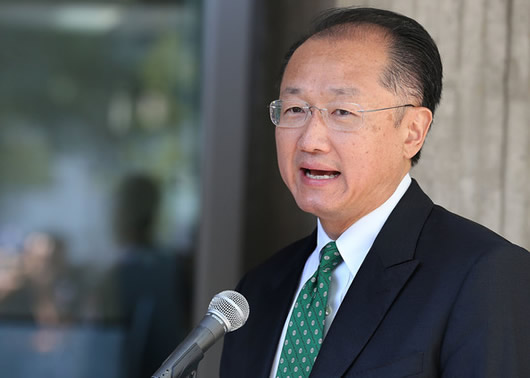
Dr Jim Yong Kim, a Former World Bank Chief, has called on Multilateral Development Banks (MDB) to “step up,” as they are much better placed than any other market-based solutions to solve the challenge of lost and insufficient human capital.
According to the former World Bank chief, the African Development systems and other MDBs were well placed to help build human capital development systems and policies that are integrated across social sectors.
“Investing in human capital is going to be a very powerful driver of economic growth,” he said.
Mr Kim was delivering the 2023 Kofi Annan Eminent Speakers’ Lecture at an online event organised by the African Development Bank Group’s (AfDB) African Development Institute (ADI).
The session, titled “The Changing Global Development Finance Architecture: Implications for Multilateral Development Banks post COVID,” also featured Dr Akinwumi Adesina, the President of the African Development Bank Group.
“The African Development Bank has introduced innovative financial instruments including synthetic securitization, risk transfer agreements and new asset classes,” Mr Kim said.
He said negative risk perception by potential global investors about Africa remained a sticking point, with currency fluctuations, political risks, concerns about the rule of law, and premiums on returns, being deterrents to investments.
“What we learned is that it is difficult, it has been discouraging to see how many misconceptions there are … there is a tremendous amount of skepticism about impact investing,” Mr Kim said.
The Former World Bank Chief said despite the setbacks, there were promising opportunities in Africa, “but we are going to have to do a lot more and a lot more together, to realise the promise of bringing in the kind of private sector funds that Africa deserves.”
He said with “new thinking” from the private sector and partnerships with MDBs, governments and projects could be more viable.
An example of such synergy is the hydroelectric power Inga Dam project in the Democratic Republic of Congo, designed to improve electricity access in the DRC and other Central
and Southern African countries.”
Dr Adesina said the Bank, which had invested in the Inga Dam project, was open to innovative partnerships.
He added that the word “Inga” meant “yes” in the local dialect and community where the dam is located. “So, I’m saying ‘yes’ to what you are saying.”
Dr Adesina said the fallout effect from Covid, climate change and debt, made the need for global financial architecture reform even more imperative.
He said, “We need more callable capital and more paid-in capital. It’s about how we make it work for us better.”
He said to provide an infusion of capital to meet growing needs, the African Development Bank and the Inter-American Development Bank have jointly developed a model to optimize the
International Monetary Fund’s Special Drawing Rights (SDRs).
The President of AfDB said Africa with a population of 1.2 billion people received only $33 billion (about 4.6 per cent of the IMFs issued SDRs, following the COVID-19 pandemic.
“The model we came up with will allow MDBs to leverage SDRs about 3–4 times so $10 billion could become $40 billion immediately. That’s the kind of scale that we should be talking about,” Dr Adesina added.
Source: GNA























